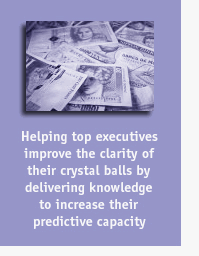
What the Economic Buyer Wants to Know
| Продажи | ||||
| Sales.com | ||||
| Selling... | ||||
by Graham Denton
In Miller Heiman terminology, the person who has the ultimate authority to approve or veto your sales proposal is known as the Economic Buying Influence or simply the Economic Buyer. In a Complex Sale, it's never enough to get only this person's approval -- by definition Complex Sales require multiple approvals -- but without it, all other approvals will be worthless. The Economic Buyer can say yes where all other decision-makers have said no -- and even where everybody else has said yes, this individual still has veto power. So getting to your Economic Buyers is essential to your success.
Often that's difficult to do because Economic Buyers, being highly placed members of their organizations, seem to have "more important" things to do than to meet with salespeople. Or so the mythology of selling would have you believe. Actually, you as a salesperson have a very good chance of meeting with these critical decision-makers if you can bring them the single thing that they always need: information that will help them run their businesses better.
 As
Diane Sanchez and Stephen Heiman, the authors of The New Strategic
Selling, put it, "The one thing the Economic Buyer always wants is
knowledge that will increase his or her predictive capability -- the ability
to plan ahead for the organization_Top-management Economic Buyers are
paid for the clarity of their crystal balls. Knowledge that increases
their ability to predict the future, and thus decreases their perceived
risk and uncertainty, is held in the highest regard." If you can offer
that knowledge to an Economic Buyer, it doesn't matter whether your business
card reads "Sales Representative," "Account Manager," or "Consultant."
You, like your information, will be held in high regard.
As
Diane Sanchez and Stephen Heiman, the authors of The New Strategic
Selling, put it, "The one thing the Economic Buyer always wants is
knowledge that will increase his or her predictive capability -- the ability
to plan ahead for the organization_Top-management Economic Buyers are
paid for the clarity of their crystal balls. Knowledge that increases
their ability to predict the future, and thus decreases their perceived
risk and uncertainty, is held in the highest regard." If you can offer
that knowledge to an Economic Buyer, it doesn't matter whether your business
card reads "Sales Representative," "Account Manager," or "Consultant."
You, like your information, will be held in high regard.
It doesn't matter either whether the information you bring the Economic Buyer relates directly to your sales proposal -- although that, of course, won't hurt. But it must relate to his or her business interests. That, and only that, is what will make you worthy of an Economic Buyer's valuable time. Only that will give you what sales trainer Tony Parinello calls "Equal Business Stature."
In Parinello's popular book Selling to VITO, the Very Important Top Officer is the approximate equivalent of the Economic Buyer. And Parinello's advice for getting through to VITO is remarkably similar to Miller Heiman's advice for reaching the Economic Buyer: Bring that person new and workable ideas. "What do I mean by Equal Business Stature?" Parinello writes. "I mean that you should have an understanding of VITO's problems and a new idea for some possible solutions to those problems. If you can show VITO that, you will have Equal Business Stature. And when you have that, VITO will spend time with you."
What kind of ideas? The answer to that will depend on the situation. But as a general rule of thumb -- and, again, Parinello and Miller Heiman agree on this -- you should focus on ideas that can have an impact on bottom line concerns. And only those ideas. When you're meeting with a VITO or Economic Buyer -- or trying to set up such a meeting -- leave the bells, whistles, and technospeak out of the equation. These top managers are primarily interested in revenues, costs, market share, overall company direction, and productivity. Address those concerns and you'll be speaking the appropriate language. Language that will get you in, and get you a hearing.